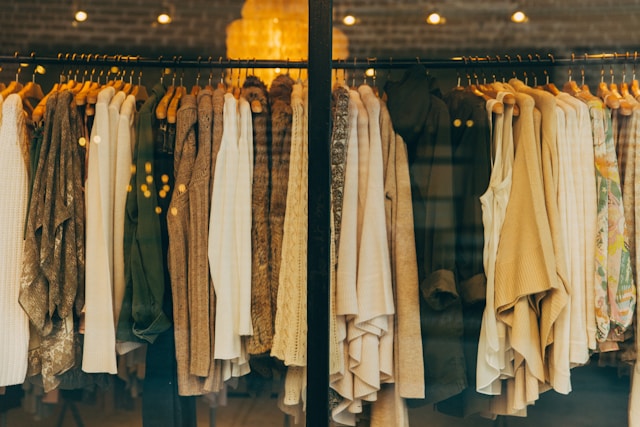
Life&Style Writer Olivia Eaton provides a guide for shopping sustainably and seeing through brand greenwashing buzzwords
So, you have just discovered that the fashion industry contributes to 10% of global carbon emissions each year and that many garments are produced by underpaid, exploited children. According to UNICEF, over 100 million children are impacted by the garment supply chain. What can you do about it?
The fashion industry contributes to 10% of global carbon emissions each year.
My name is Olivia and I own a sustainable fashion brand, OBE Label. I am hugely passionate about spreading awareness about the fast fashion industry’s detrimental effects on society and the earth. For many, the most difficult part is figuring out how to begin transitioning away from fast fashion. Hopefully, this article will help you to know whether a brand is truly sustainable or ethical by telling you what to look for and red flags. I should also note that I certainly recommend shopping second hand on places like Hazaar, Vinted or Depop before buying new, but here is a guide for shopping new.

Materials
What is the fabric composition?
Polyester is a very popular fabric, especially in fast fashion clothing, yet it is made from petroleum. It is harmful to produce but also every time it is washed, it sheds microplastic fibres that are harmful to our health and marine life. I have seen a new Primark collection called ‘Primark Cares’, where they advertise that their fabric is made from 50% recycled polyester. Please remember that this means 50% of the polyester is still not recycled, and considering the mass volume of clothing produced, they are causing huge environmental damage. Primark does not care.
Nylon is another popular plastic fabric with a huge environmental cost to produce. It is also worth remembering that someone has to do the labour to source petroleum to create these fabrics and chances are, they are underpaid and exploited. Throughout the whole supply chain real humans are doing real work and it is easy to forget about them when you see a cute T-Shirt in Bershka.
Someone has to do the labour to source petroleum to create these fabrics.
Although cotton is natural, cotton farming requires lots of water and pesticides, and slavery is known to be rampant in cotton production. I recommend looking for organic or bamboo cotton, or just ensuring that the brand you are looking at has anti-slavery awareness or certificates.
Always ensure you look at the fabric tag and be generally aware – this also helps you to check a brand is worth the money. As a general rule, natural fabrics are better quality and more expensive, so be wary if a brand is charging a large amount for cheap materials. Odd Muse for example is currently selling a blazer made from acrylic, polyester and 5% ‘other’ (?) with a 100% polyester lining for £185. For this price it should be organic cotton or linen – remember more expensive does NOT mean higher quality! I know it is easy to get overwhelmed and start thinking ‘What can I wear then!?’, but as long as you have general awareness and start making conscious decisions, you are making a difference.
Transparency
How transparent a brand is about its supply chain, workers and production is hugely telling about its approach as a whole. It is a major red flag if there is no mention of this on their website or social media, and it is safe to assume they are using cheap sweatshops and exploiting vulnerable people. Please remember that if an item is super cheap, someone, somewhere, is paying for it.
I recently came across a brand, Girlfriend Collective, and on their ‘about’ page they specify where their items are made and that the factories they work with are SA8000 certified (social certificate to protect workers) and WRAP certified (responsible production certificate). They also talk about how they chose their partners and where they source their materials. This transparency is rare and brilliant!
If an item is super cheap, someone, somewhere, is paying for it.
Greenwashing
Finally, a reminder to stay vigilant in a world of greenwashing. Primark does not care. Despite its price tag, Odd Muse is a fast fashion brand. Always look into a brand and don’t believe their eco-friendly advertising unless you can find something that will back up what they are saying. Your style will be elevated when you start shopping second-hand and at high-quality shops (trust me), and your conscience will be clear.
Recommended brands:
- OBE Label (www.obelabel.com)
- Hissy Fit (www.hissyfitclothing.com)
- Girlfriend Collective (www.girlfriend.com)
- Lucy and Yak (www.lucyandyak.com)
- Rapanui (www.rapanuiclothing.com)
Read more from Life&Style:
The Secret to Hello Kitty’s Half-Century of Success: Celebrating 50 Years of a Global Icon
Advice From a Third Year for Soon-To-Be ‘Silly Freshers’
When Fashion Meets Protest: Spotlight on the Cannes Film Festival
Comments